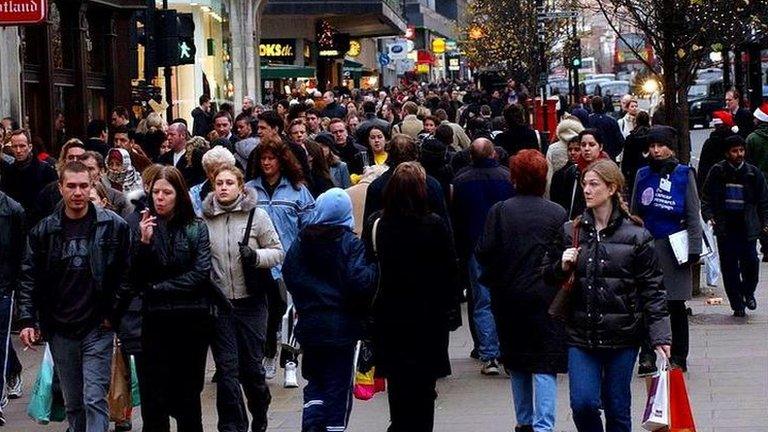London's population hits 8.6m record high
- Published
London's population has increased by nearly two million in the past 25 years
London's population has topped 8.6m, the highest since its 1939 peak, the Greater London Authority has revealed.
The figures show Hillingdon has had the greatest growth in population, while 44% of the city's people are now of black or ethnic minority origins.
Mayor Boris Johnson said the figure was predicted to reach 11m by 2050.
He added the capital was the "best big city on the planet" but said more financial control was needed to fund key infrastructure, like housing.
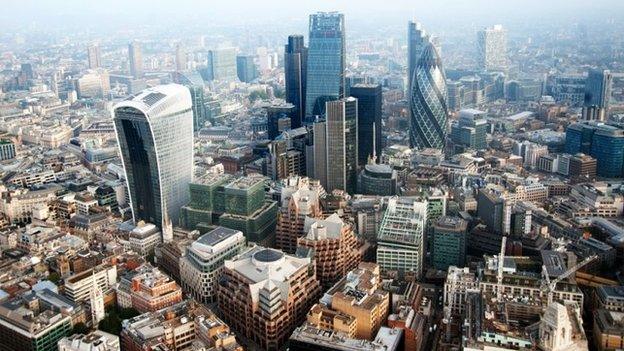
London now has a population of 8.6m, the highest since the start of World War Two
London covers a total area of 1,572 sq km (607 sq m) with a population density of 5,197 Londoners per sq km, making it the largest city in Europe.
Hillingdon as a borough has increased from 159,000 residents in 1939 to 289,000 this year, while Islington has seen the biggest reduction, falling from 343,000 residents in 1939 to 221,000 in 2015.
London's population has increased by nearly two million in the past 25 years
Prof Michael Batty, from University College London, told BBC London 94.9 the population fell after 1939 in part due to "suburbanisation".
He said: "It went down from about 8m to 6.6m over a period of about 30 years and the main reason was suburbanisation - suburban growth, people getting cars, changing transport and also slum clearance.
"London, of course, was less attractive internationally in terms of migration during those years."
He said much of the population growth in the past 10 years was down to international migration, which could make the population size difficult to predict in the future.
"When you have such a large proportion of growth which relates to international migration, this is really dependent on what is happening in the rest of the world," he said.

Population facts from the Mayor of London's Office
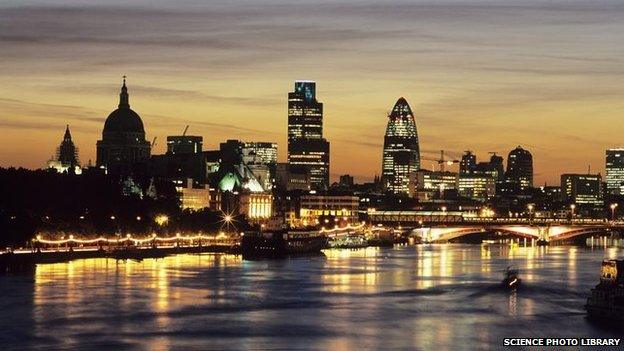
London's population has increased by nearly two million in the past 25 years
Just over 3.8 million of London's residents (44%) are of a black and minority ethnicity origin, which is expected to increase to 50% by 2038
The life expectancy of Londoners has increased from 62 in 1939 to 82
Find out more - London's population high: Top metropolis facts

Mr Johnson said: "With more green space than any other European city, a thriving economy, a low crime rate and a roaring cultural scene, it is no surprise that London is the place to be.
"What we need now is the government to grant greater fiscal devolution to London so that we can properly fund the key infrastructure that is so vital to stimulate jobs."
'Services pressure'
To manage the city's growth the mayor said he was developing the London 2050 Infrastructure Plan, external.
He said with transport requirements expected to increase significantly, Tube services would need to be extended, Crossrail 2 would need to be approved and in addition more accessible green space, schools and colleges were needed.
Labour has called for further spending on infrastructure.
Len Duvall, London Assembly Labour Group leader, said: "Londoners are desperate to see much needed investment in the capital's transport and wider infrastructure, and today's population figures show why that funding is so necessary."
Dr Michelle Drage, chief executive of the Londonwide Local Medical Committees, which represents GPs in the capital, said the increase had led to a pressure on services.
"Everyone focuses on hospitals, but nobody thinks about investing in community services," she said.
"We heard the mayor talking about housing, if you have housing you have to have doctors and nurses but you also have to have support services, community nurses, mental health services, social services and they have been stripped back to the bone."
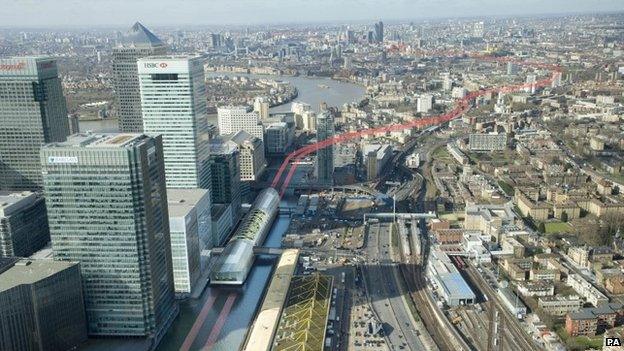
Transport pressures are set to increase with the mayor suggesting more Crossrail projects may be needed
- Published2 February 2015
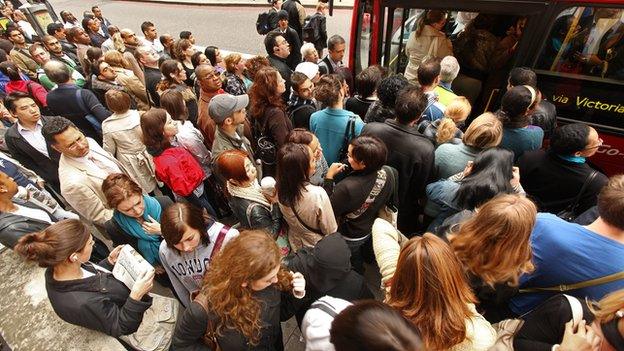
- Published30 July 2014
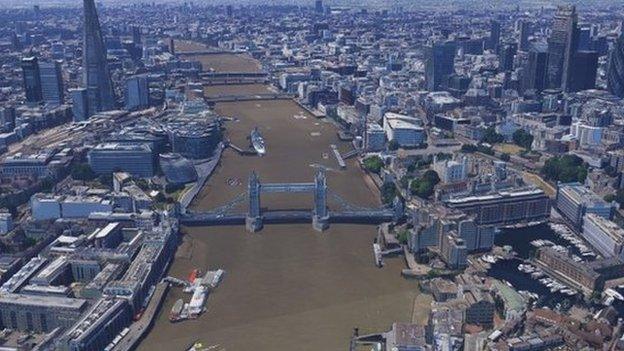
- Published20 February 2013
- Published11 December 2012
